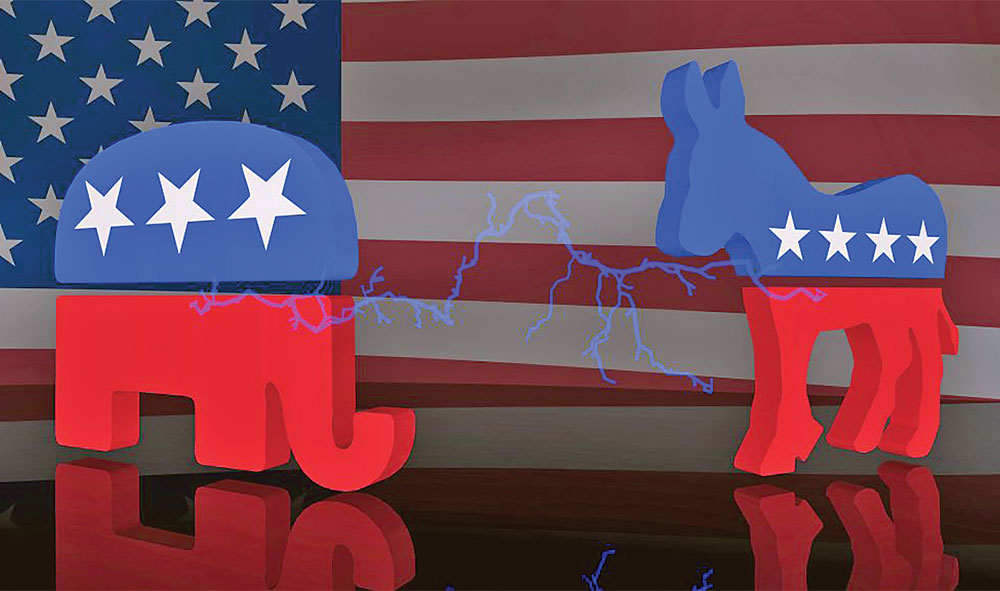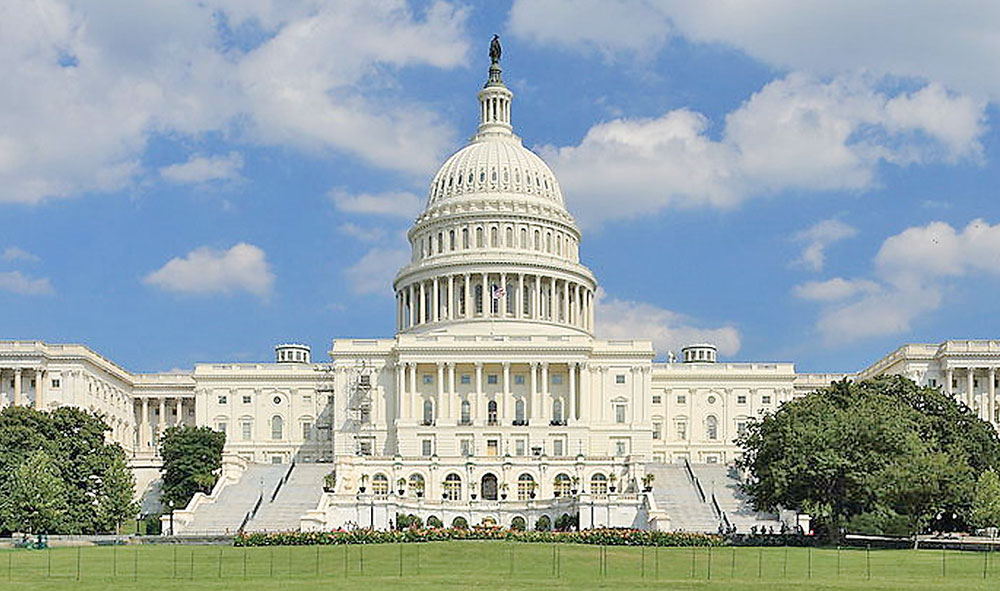MUSLIMS ENTER AMERICAN POLITICS
- 10 Nov - 16 Nov, 2018

The start of a new year is always, at least ostensibly and conventionally, a time of hope. We use the arbitrary occasion to look back over the year just past, then to look forward and allow ourselves to believe that good things might happen during the year to come. It’s entirely reasonable for human beings to be hopeful; indeed it’s probably necessary. But for us in America, as the horrible year 2017 draws to a close and we look ahead with trepidation to 2018, what we’re entitled to hope for is an open question, and a fraught and contested one.
What I’m trying to find a tactful and indirect way to write about is the political situation in the United States. Assuming that American politics still functions the way it mostly has during my lifetime, 2018 should be a midterm election year when the incumbent presidential administration, and the congressional majority party, face a reckoning with the voters on their policies and the direction of the country. Incumbent parties usually lose seats in midterm elections, and the pendulum of governance swings left or right, more or less gently, across the great American middle ground. The question, though, is whether American politics still functions the way it always has. And the answer is unfortunately obvious: No, it doesn’t. For one thing, the pendulum doesn’t swing gently anymore.
And conventional historical logic would suggest that, having rammed through a reckless, confusing, and highly unpopular revision of the country’s tax code, the Republican Party would face a backlash from voters in November 2018. And, for many of us, that is a hope. But, if the past year has proven anything, it’s that one year is now a very long time in American politics. Who can say, anymore, what will be going on in America or in the world come November?
In America now there is no actual governing taking place, no shared purpose, no coherence to national life, no meaningful narrative that everyone can follow from one chapter or episode to the next. In that context – or rather, lack of context – one-off events like the fatal crash of a commuter train near Seattle (where I live), the Atlanta airport – the world’s busiest – losing electricity for many hours right at the start of the hectic Christmas travel season, and the massively destructive Thomas fire in Southern California take on vaguely ominous significance, fanning the flames of Americans’ always latent paranoid streak. From sea to shining sea ordinary people – like, for example, me – find ourselves wondering: If a natural disaster or infrastructure failure hits my city, will I be left to fend for myself?
Another thing there’s none of anymore in America is continuity. Trump and his minions have shown, throughout 2017, a radical contempt for continuity in either domestic governance or foreign policy. The world, as represented by the 128 countries that voted for the resolution condemning the move of the U.S. embassy in Israel from Tel Aviv to Jerusalem, finds itself wrestling a rogue elephant and imagining with alarm what Ambassador to the United Nations Nikki Haley might mean by hinting darkly about “taking names”.

When an empire is in the throes of terminal decline, its only weapons left to enforce its imperium are brute force and ideology. That is, perhaps, where we can see continuity: the U.S. functioned in the world as an empire under Clinton, Bush, and Obama, many years before anyone other than science fiction novelists imagined that Donald Trump would ever be President of the United States. By the time the Roman Empire declined and fell it stood for little other than, well, Roman power. In the wake of the death of the Emperor Aurangzeb in 1707, after massively squandering imperial goodwill and treasure in pursuit of territorial gains in South India, the Moghul Empire continued to exist… sort of; right up until the British officially abolished it in 1858. It might be by way of such historical analogies that we can begin to understand what’s happening in and with America in the early 21st century.
And, in case there were any doubt that the United States is an empire in terminal crisis, the island of Puerto Rico should serve as Exhibit A. Puerto Rico is considered a “commonwealth” or overseas territory, not a state. But regardless of the island’s official political status, its residents are fully fledged U.S. citizens. Given that, Trump’s brutally pointed lack of response to the devastation wrought on Puerto Rico by Hurricane Maria is extremely revealing. More than three months after Maria, much of Puerto Rico remains entirely without electricity.
While I was driving around America five years ago, I read Lustrum, the second volume in Robert Harris’s trilogy of novels covering the life and career of the great Roman statesman, Cicero. The narrator, Cicero’s slave Tiro, reflects that “There are no lasting victories in politics, there is only the remorseless grinding forward of events.” Then he reflects: “Perhaps Caesar is right – this whole republic needs to be pulled down and built again.” A frightening thought, considering that what was built after the fall of the Roman Republic was not another republic. And pulling down is the easy part.
We can hope against hope, but there will be no fresh start for America in 2018. To make a long story short, we don’t deserve one. Nor will there be any course correction or “do-over”. We’ve made our national bed, and we’re going to have to lie in it. And here’s the real catch: we’re stuck here, in this severely damaged, dysfunctional country, with each other. That’s our karmic punishment for screwing up our national public life as badly as we’ve done. •
COMMENTS